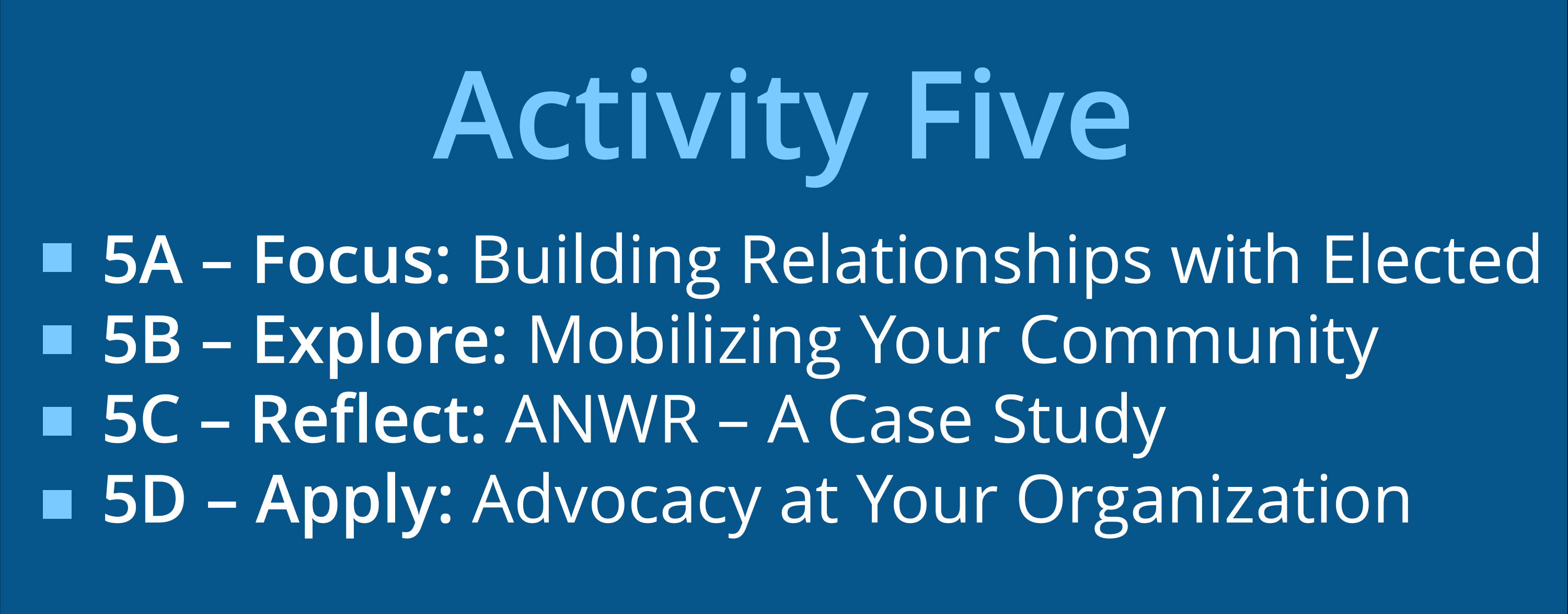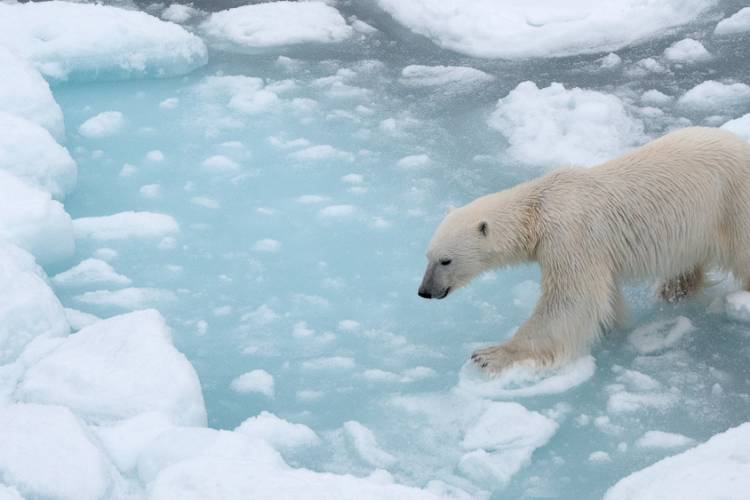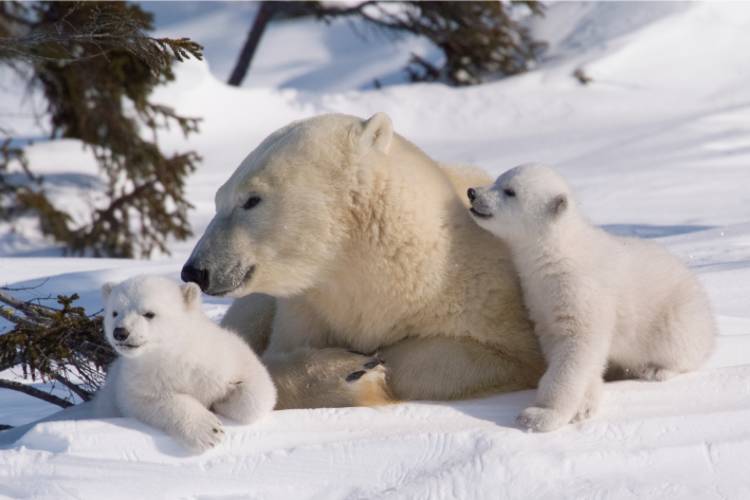
Activity Five
Conservation Advocacy
Now more than ever, it’s critical that aquariums and zoos work with policymakers and the public to advocate for a healthy planet. In this section, we’ll explore the unique role that zoos and aquariums play in advocacy, with a special focus on education.
Although this information focuses on advocacy in the United States, the fundamental principles are applicable in any country.
A landmark new paper from our chief scientist emeritus addresses a loophole in the Endangered Species Act, paving the way for removing the current roadblock to polar bear protections. As a primer for this discussion on policy and advocacy, please take a moment to review a backgrounder on Dr. Steven Amstrups groundbreaking paper.

What is advocacy?
Our education and conservation work is core to who we are. Equally important is building relationships with decision-makers, and empowering them to champion the issues we care about. This is advocacy, and it can take many forms. For example:
Taking elected officials on a tour at your organization
Organizing a youth program field trip to the state capital, city hall, or other civic center
Asking a member of Congress or local officials like mayors or city council members to support specific policies
Thanking a member of Congress or other elected official on social media for supporting a policy or issue of concern
Support specific policies in programming and on social media
Teach your guests and members how they can support wildlife- and climate-friendly policies
The power of Advocacy
Zoos and aquaria are united by our goals of furthering conservation and preserving species and ecosystems. Policies are crucial levers to pull in achieving these ends. Whether it’s through the establishment of protected areas, endangered species declarations, or through reducing carbon emissions (like transitioning to renewables or electrification of vehicles and infrastructure), policies are some of the most singularly-impactful actions in the environmental realm. Harnessing the power of policies through strategic advocacy tailored to our individual, unique institutions can expand our conservation work and fast-track our goals.
Why should zoos and aquariums advocate?
You might be thinking, “advocacy’s not my lane.” Maybe it feels too political, or maybe you don’t think you have the right experience to get involved.
Spoiler: advocacy is your lane!
Whether you’re an educator, a scientist, an animal care professional or marketing specialist, you play an important role in advancing your organization’s mission. You know your program best, you have stories to tell and stories are how we inspire people to care about and act on issues. Advocacy is one way to ensure your stories are being told. If you’re not actively participating in these relationships, then others are making decisions for you.
To be an effective advocate, all you need is the ability to communicate about and be proud of what you do.
The public expects us to advocate
Survey data comparing public perceptions of zoos and aquariums against government agencies non-governmental organizations (NGO’s) shows that the public trusts zoos and aquariums more. They see zoos and aquariums as the least likely to have a “political agenda.” And more than 75% agreed that zoos and aquariums are highly credible sources of information, and that zoos and aquariums should recommend ways for the general public to support its causes and mission.
While specific cultural and legal considerations will inform how each of our zoos and aquariums can approach advocacy, it’s clear that advocacy is an essential piece of our conservation toolkit.
This section is intended to help you consider advocacy in your climate action plan as you integrate the knowledge you gain from Climate Alliance.

Ready?
Let's begin with Activity 5A–Focus.

Back
Go back to the course homepage.









